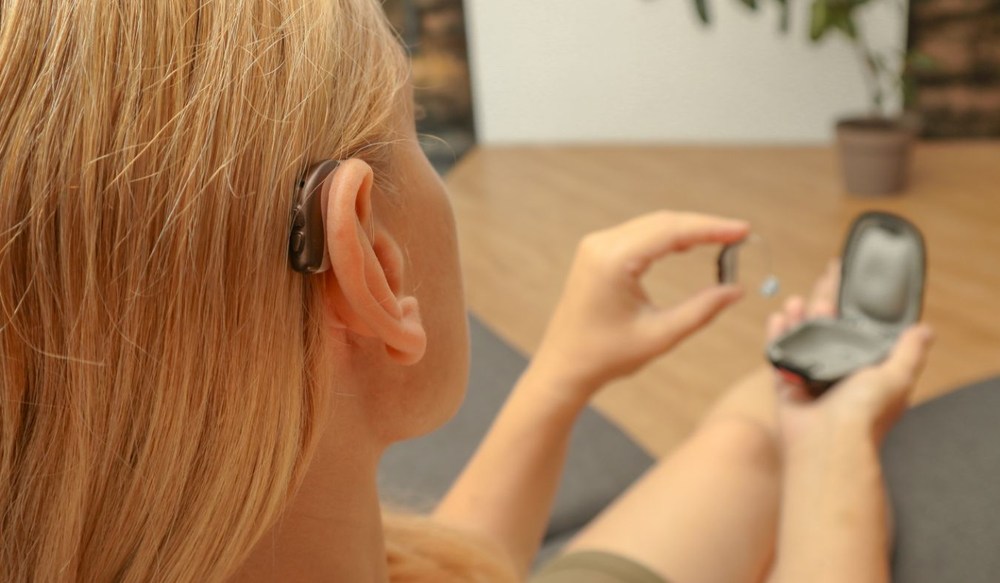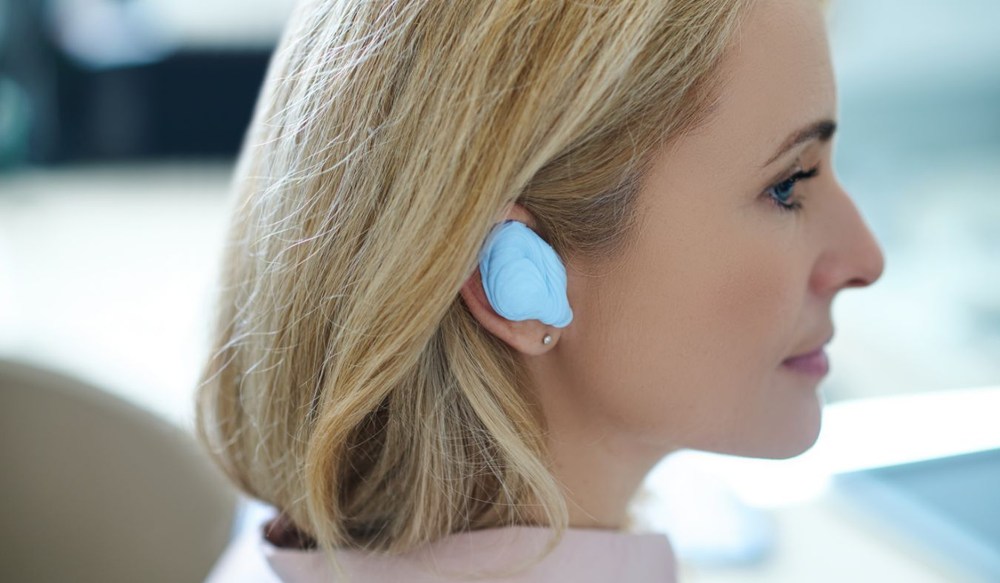Can Hearing Loss Be Reversed? When It’s Possible and When It’s Not
When hearing begins to change, it’s natural to wonder whether it can get
NEW! Improve your hearing & how your brain processes sound with the new LACE AI PRO. Learn More

By: admin | May 30, 2024
Hearing loss can initially seem like an isolated issue, impacting only your ability to perceive sounds. But our senses are deeply interconnected, and hearing loss doesn’t just affect how well you hear the world around you; it could also influence other sensory experiences. Let’s take a look at this question: Is there a hidden link between your auditory function and other senses like taste and smell?
Our senses don’t exist in isolation. They’re like a tightly knit team, working together to help us interact with and understand the world around us. This means that a change in one sense, like hearing loss, can sometimes have unexpected effects on others.
Consider your sense of balance. It’s not something we often associate with our ears, but it’s actually regulated by the inner ear. When hearing loss happens, it could potentially affect this delicate system, leading to issues with stability and coordination.
What’s more, there’s growing evidence to suggest that hearing loss might even influence your sense of taste and smell. While more research is needed to fully understand these connections, it’s clear that hearing isn’t just about sound – it plays a role in our overall sensory experience. So when you take steps to manage your hearing health, you’re not just improving your ability to hear – you’re caring for your entire sensory system.
Are you curious about how our hearing works? Let’s take a closer look.
The process of hearing is fascinating and involves several key steps:
Understanding the world around us is a symphony of sensory experiences, with hearing playing a key role. The sound of raindrops on the window, your favorite song on the radio or a loved one’s laughter – these everyday moments are all shaped by our ability to hear.
But what happens when hearing loss comes into play? It’s not just about turning up the volume on your TV or asking people to repeat themselves. It could subtly change how you experience taste and smell too. For example, some research suggests that people with hearing loss might find certain foods less flavorful. So, taking care of your hearing health isn’t just about preserving sound – it could also help maintain the richness of your other sensory experiences.
As we explore the realm of sensory perception alterations due to hearing loss, it becomes clear that this condition has far-reaching implications. It’s not just your ears that are affected; your entire sensory system may experience changes.
Let’s consider the potential impact on taste and smell. Some studies suggest that individuals with hearing loss might find their sense of taste slightly dulled. This could mean that your favorite foods might not seem as flavorful as they once were. Similarly, your sense of smell might also be subtly altered. It’s a surprising connection, but one that emphasizes the interconnected nature of our senses:
Now, let’s focus on the possible connection between taste and hearing loss. Could your ability to savor your favorite foods be influenced by changes in your auditory function? The science suggests this might indeed be the case. Research shows that hearing loss could potentially affect how we perceive taste. This isn’t about not being able to tell sweet from sour, but rather a subtle change in how flavorful food seems.
Scientific research has explored the relationship between taste and hearing loss, revealing interesting connections between these two sensory experiences. While taste and hearing are distinct senses, they both play crucial roles in our perception of flavor and enjoyment of food. Studies have shown that individuals with hearing loss may experience alterations in their taste perception, leading to changes in how they perceive flavors and textures.
One area of research focuses on the impact of sensory deprivation on taste perception. Hearing loss can result in sensory deprivation, as the brain receives less auditory input over time. This deprivation may affect the brain’s ability to process taste signals effectively, leading to differences in taste sensitivity and preferences.
There is also evidence to suggest that age-related hearing loss may be associated with changes in taste perception. As individuals age, they may experience declines in both hearing and taste function, which can impact their overall sensory experiences. Understanding these age-related changes can help researchers develop strategies to maintain sensory function and enhance quality of life in older adults.
Next, let’s examine another fascinating aspect of sensory perception – the potential link between smell and hearing loss. Just as we’ve seen with taste, changes in your auditory function could also influence your sense of smell. The interplay between these two senses is an area of growing interest in scientific research.
Studies are beginning to show a possible connection between hearing loss and alterations in our ability to detect different smells. This isn’t about losing your sense of smell entirely, but rather subtle shifts that might make certain scents less noticeable or distinct. It’s another example of how hearing loss can reach beyond sound perception and touch other parts of our sensory experience.
So what does this mean for you? Simply put, taking care of your hearing health could potentially help preserve the richness of your olfactory experiences too. Regular check-ups with an audiologist and consistent use of any prescribed hearing aids can go a long way towards ensuring you continue to enjoy life’s many scents and aromas.
Research on the impact of hearing loss on the sense of smell has revealed intriguing connections between these two sensory functions. While hearing and smell are distinct senses, they both contribute significantly to our overall perception of the world around us. Studies have shown that individuals with hearing loss may experience changes in their sense of smell, leading to alterations in how they perceive and interpret odors.
One area of research focuses on the relationship between sensory deprivation and changes in olfactory perception. Hearing loss can result in sensory deprivation, as the brain receives reduced auditory input over time. This deprivation may affect the brain’s ability to process olfactory signals effectively, leading to differences in smell sensitivity and discrimination.
There is also evidence to suggest that age-related hearing loss may be associated with declines in olfactory function. As individuals age, they may experience reductions in both hearing and smell acuity, which can impact their overall sensory experiences. Understanding these age-related changes can help researchers develop strategies to maintain olfactory function and enhance quality of life in older adults.
Additionally, some studies have investigated the relationship between hearing loss and specific olfactory disorders, like anosmia or hyposmia. By examining the prevalence of olfactory dysfunction in individuals with hearing impairment, researchers aim to identify potential underlying mechanisms and risk factors associated with sensory changes.
As we continue our discussion on hearing loss, it’s key to address the sensory shifts that might come along with it. You may notice changes not only in your ability to hear but also in your taste and smell perceptions. Here are some strategies to help you cope:
Navigating the world with hearing loss can be challenging, but there are strategies to enhance your sensory experiences. Let’s discuss some tactics that might help.
Firstly, staying proactive about your hearing health is essential. This includes regular check-ups with your audiologist and consistent use of any prescribed hearing aids. These actions can potentially mitigate the impact of hearing loss on your other senses, like taste and smell. Secondly, consider incorporating more spices or herbs into your meals to boost flavor perception. Here are a few more tactics you could try:
Did you know that about 15% of American adults report trouble hearing? That’s a significant number, and it highlights the widespread nature of hearing loss. But here’s something even more interesting: this issue doesn’t just affect your ability to hear – it could potentially alter other sensory experiences too.
When you start noticing changes in your senses due to hearing issues, it might be time to seek professional help. An audiologist can provide valuable guidance and support in managing these changes:
Your hearing ability – and any challenges – can potentially impact more than just your ability to perceive sounds. It may also influence your senses of taste and smell, subtly changing how you experience the world around you. Yet, every individual’s journey with hearing loss is unique, and these potential changes may not apply to everyone. That’s why regular check-ups with an audiologist are so important.
At Innovative Hearing Care in Riverside, CA, we understand the intricate connections between our senses and are here to support you in managing your overall sensory health. For more information or to schedule an appointment at our Riverside location, please contact us at (951) 291-9081.

When hearing begins to change, it’s natural to wonder whether it can get
By: admin | January 19, 2026

Autumn weather brings a combination of conditions that can affect your
By: admin | November 18, 2025

Warm weather brings out activities that can put your hearing at risk in
By: admin | September 24, 2025
